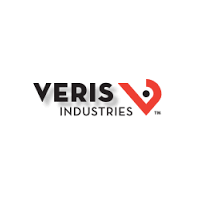
Veris Industries
Veris Industries, located in Tualatin Oregon, is a premier provider of environmental sensors and energy management solutions for commercial HVAC, energy management, renewable energy, and industrial control applications. Veris has an extensive product portfolio that includes a wide array of control devices including air quality sensors, current sensors, humidity sensors, leak detection systems, lighting control devices, network integration systems, power and energy monitors, pressure sensors, relays, temperature sensors, and more. Veris’ products integrate with a facility’s main controls system providing valuable feedback on energy consumption, and helping to monitor, regulate, and decrease a facilities energy use.